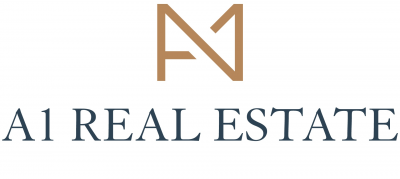
Hôtel vs appart-hôtel vs appartement meublé : quelle option pour un séjour de 3 à 12 mois à Paris ?
When renting a property, it is necessary to carry out work to help with its maintenance. As for who has to pay for said work, the costs are distributed between the owner/landlord and the tenant. Specifically, the latter has to pay for work needed for plumbing, heating, boiler maintenance, electricity, interior, exterior, windows, doors, and appliances.
What are the obligations of the tenant when talking about work?
Typically, the expenses that the tenant has to shoulder in terms of repairs and maintenance are less substantial and less expensive compared to those shouldered by the owner/landlord. Nevertheless, they remain essential in maintaining the rental property, especially since they concern both the interior and exterior of the place.
These routine maintenance costs include:
- Exterior of The Property
- Lawn and tree maintenance (within the scope of the property), gutter maintenance, pool maintenance (if applicable), garden cleaning, lubrication of the fence and/or gate, pruning, pruning, and weeding of trees and shrubs.
- Interior of The Property
- Plugging holes in the walls, repainting walls, tapestry or carpet fittings, furniture maintenance, and toilet maintenance (replacing joints, floats, and flush bell seals).
- Plumbing, Heating, and Boiler Maintenance
- Important to Note: these depend on whether the lease specifies that the tenant is to shoulder these expenses throughout the term.
- Unclogging of water pipes, replacement of joints and collars, emptying septic tanks, sumps & cesspools, small repairs on taps and replacement of gas pipe accessories, cleaning of limescale deposits, and replacement of shower hoses.
- Electricity
- Replacement of fuses, switches & sockets, electrical installation (as many as possible), and changing of lamps and bulbs.
- Windows and Doors
- Wrist changes, key replacement, shutter maintenance, etc.
- Appliances
- Repairs for refrigerator, washing machine, dryer, extractor hoods, antenna, heat pump, stove, chimney sweeping, gas and ventilation, and maintenance of fireplace (if applicable).
2. The rights of the tenant:
The rented accommodation is the residence of the tenant. The tenant is therefore entitled to arrange and use the premises freely. It can also:
- Live serenely without receiving untimely visits. The landlord must respect the privacy of his tenant and must not make untimely visits without warning him.
- Benefit from housing in the norms, in good conditions (a holy housing). The owner must be able to offer a rental housing that is up to standard and functional. If the property requires major maintenance and renovation work, the owner must pay for it.
- Make adjustments in the rental housing if he wishes. For example, doing energy renovation work at your own expense (insulation of floors, installation or replacement of a ventilation system, insulation of the attic etc.)
3. What the tenant is not allowed to do
- Stop paying rent and utilities
- Subletting without permission since this is possible only with the agreement of the owner-lessor. However, no one can prohibit the accommodation of a family member, or the accommodation of the partner.
- Possess a dangerous animal: wild animals, dogs of the first category (attack dog) and second category (defense dog, guard dog).
- Cause disturbances in the neighborhood, with some exceptions of course. Remember to warn the neighbors in advance.
- Carry out major work without the owner's permission
- Leave the accommodation without notice, without warning.
What are the works at the expense of the tenant?
Commonly, repairs at the expense of the tenant are less substantial than those at the expense of the owner (which are also more expensive), but these remain essential.
All parts of the dwelling (interior or exterior) and its equipment are concerned.
This routine maintenance concerns:
All parts of the dwelling (interior or exterior) and its equipment are concerned.
This routine maintenance concerns:
- The parts outside the dwelling : lawn and tree maintenance (as far as possible), gutter maintenance, pool maintenance, garden cleaning, lubrication of the fence and gate, pruning, pruning and weeding of trees and shrubs, etc.
- Plumbing, heating, and boiler maintenance (attention : except in case of assumption of responsibility for the lessor or owner, this is stipulated in the lease): unclogging of water pipes, replacement of joints and collars, emptying of septic tanks, sumps and cesspools, small repairs on taps and replacement of gas pipe accessories, cleaning of limescale deposits, replacement of shower hoses.
- Electricity : replacement of fuses, switches and sockets, electrical installation (as far as possible), change of lamps and bulbs.
- The interior : plug holes in the walls, make paint, tapestry or carpet fittings, furniture maintenance, toilet maintenance (replace joints, floats and flush bell seals), etc.
- Windows and doors : wrist changes, key replacement, shutter maintenance, etc.
- Equipment : refrigerator, washing machine, dryer, extractor hoods, antenna, fireplace, heat pump, stove, chimney sweeping, gas and ventilation, etc.
Who is responsible for the damage during the current lease?
When something is damaged during the term of the lease (i.e. stains on the walls, damaged parquet, etc.), the tenant is responsible only if they were the cause.
The tenant is also held responsible if the damage was caused by:
If the tenant did not cause the damage/s within the property, they must prove it to evade responsibility. Once proven, the responsibility then lies with the owner/landlord. In the event of a conflict, however, both parties can take the case to the District Court.
In the case of damage/s caused by an intruder, the tenant is not liable to shoulder the repair costs. Instead, they'll have to contact their home insurance provider to know which steps to take. Do take note that these steps vary according to the type of insurance contract that the tenant got. With comprehensive home insurance, here are the events and incidents covered:
The tenant is also held responsible if the damage was caused by:
- Those who reside with them (i.e. roommates, family members, etc.)
- A Subtenant
- Their guests
- Workers they hired (i.e. housekeepers, repairmen, craftsmen, etc.)
If the tenant did not cause the damage/s within the property, they must prove it to evade responsibility. Once proven, the responsibility then lies with the owner/landlord. In the event of a conflict, however, both parties can take the case to the District Court.
In the case of damage/s caused by an intruder, the tenant is not liable to shoulder the repair costs. Instead, they'll have to contact their home insurance provider to know which steps to take. Do take note that these steps vary according to the type of insurance contract that the tenant got. With comprehensive home insurance, here are the events and incidents covered:
- Fire, explosions, and related risks
- Theft
- Storms, hail, the weight of snow
- Glass breakage
- Natural disasters
- Civil liability
- Attacks, terrorist acts, vandalism
- Water damage, frost (during winter)
- Floods
Ce qu’il faut retenir :
- Tenants are responsible for the maintenance and cleanliness of the rental property
- Routine maintenance and/or minor repairs are at the tenant's expense.
- Tenants are also responsible for the costs of restoration in case of damages or lack of/improper maintenance.

You want to
to sell in Paris or its surroundings ?
Contactez-nous
Posted on 03/10/2022 by
Andy LECUYER




